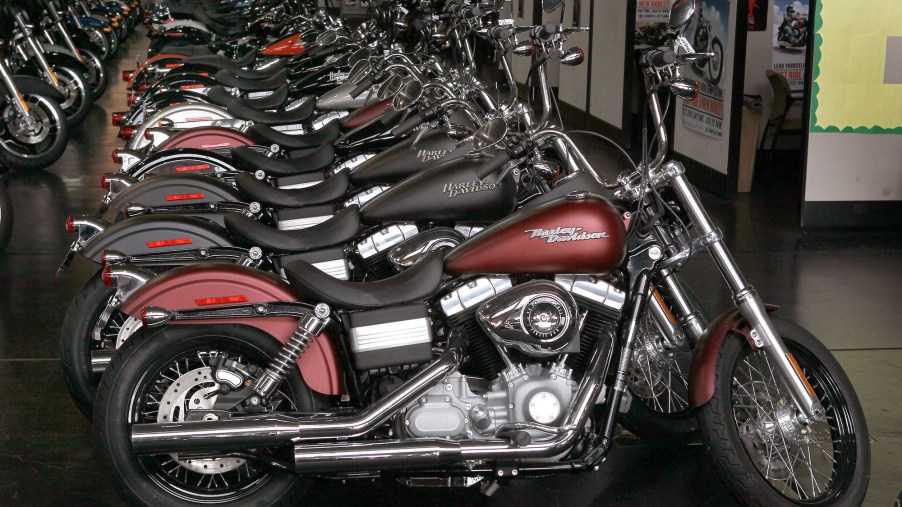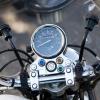
The Most Common Harley-Davidson Complaints
Any established company gets complaints. Professional and amateur critics unfailingly take issues with products. And when a company sells an extensive product line, not every offering is a hit. In fact, some are almost guaranteed duds. Despite Harley-Davidson‘s excellent reputation as a maker of quality bikes and its storied century-plus history, it has seen its share of criticism over the years.
Here are a few of the most common complaints about Harley-Davidson.
Harley-Davidson motorcycles have had numerous safety issues
Over the years, Harley-Davidson has been the subject of numerous complaints about bike safety issues. Again, that’s to be expected of any large manufacturer with a wide array of products. Product recalls have addressed these safety issues, some of which affected a significant number of vehicles.
For example, brake fluid leaks in certain bike models in 2010 affected as many as 250,000 units, according to a defect notice Harley-Davidson issued. A more recent issue involved DOT4 brake fluid, which could gel and harden if not flushed periodically. According to CNET, fluid deposits near and in brake components could lead to brake failure, prompting Harley-Davidson to recall 175,000 units in 2018.
Owning a Harley-Davidson bike is expensive
Harleys are expensive, often three to four times the price of motorcycles from overseas rivals. But it’s not just the hefty amount of money you’ll need to shell out upfront. Harleys are also expensive to insure — again, more so than insurance for motorcycles from competing manufacturers. And you’ll need insurance, not only in the event of an accident but also theft. According to the National Insurance Crime Bureau, Harley-Davidson bikes were among the top five most stolen motorcycles in the United States in 2018.
And though all motorcycles require some upkeep, maintaining a Harley also costs more. Further, it’s challenging to find a certified mechanic who can help you maintain it outside a Harley-Davidson service center. And if you go to a Harley-Davidson service center? You guessed it — you’ll pay a premium for service.
Harleys appeal to a narrow audience
Harley-Davidson, whose brand has been synonymous with the bad-boy image since the latter half of the 20th Century, has been assailed for being dated. Many younger consumers, having grown up watching their parents ride Harleys, instead shifted to smaller, more lightweight Kawasaki, Yamaha, and Suzuki bikes. And years of declining sales have indicated to many critics and even company insiders that the brand needs a refresh.
The company has expanded its motorcycle line to appeal to a broader audience. According to CNBC, Harley-Davidson launched a line of smaller, sleeker bikes in recent years. It also recently released an all-electric bike, Serial-1, which has been well-received.
But Harley-Davidson has also hedged its bets with its classic brand. In 2019, the company announced its initiative, Learn to Ride, which aims to put 1 million Harley riders on the road by 2027, in part by providing non-riders with lessons on how to ride a Harley. Would-be riders can receive 90-minute lessons from experienced coaches at select Harley dealers.
The company is betting these lessons will prime a new generation of consumers to prefer and purchase Harley bikes. Whether this strategy will pay off is still unknown.
Harley bikes harm the environment
But it’s not just that millennials and zoomers thought Harleys uncool because their parents rode them. Younger consumers have expressed strong preferences for environmentally friendly brands. And most Harley-Davidson motorcycles, whose powerful engines emit their fair share of greenhouse gases (GHG), aren’t eco-friendly.
The company has taken great strides to reduce GHG emissions in its bikes and manufacturing processes over the years. And its new smaller motorcycles and electric bikes are more environmentally friendly. Still, it has taken some time for Harley-Davidson to adapt to shifting consumer preferences for eco-friendly products.
Despite these complaints, Harley-Davidson continues to manufacture classic and award-winning motorcycles and sells hundreds of thousands of these bikes annually. This iconic brand, permanently cemented in American history, continues to capture new and loyal customers each year.


